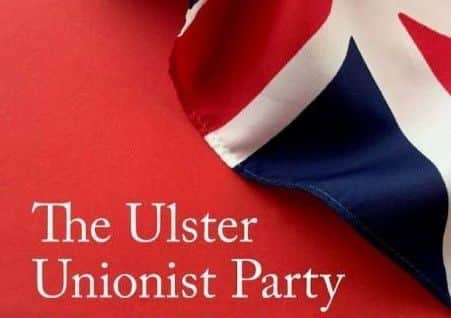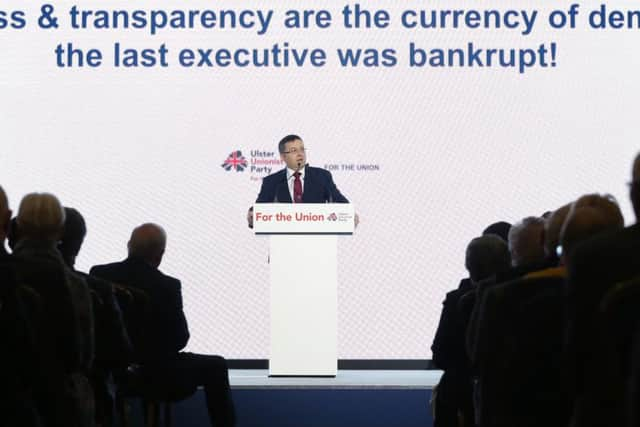Over 90% of UUP members oppose Irish language act, new study finds
and live on Freeview channel 276
The research, which is the basis for a new academic book examining the past and future of the party which shaped Northern Ireland for most of its history, shows that more than 90% of UUP members believe that only English should be the official language of Northern Ireland.
The study found that 63.4% of UUP members strongly believe that ‘only English should be the official language in Northern Ireland’, while a further 29.4% agree with that proposition - a combined total of 92.8%.
Advertisement
Hide AdAdvertisement
Hide AdLess than 4% of UUP members either disagreed or strongly disagreed with the statement.


The figures are among a series of striking findings from a detailed survey of almost 1,000 UUP members, something done with the support of the party leadership and the basis for a new book – The Ulster Unionist Party: Country Before Party, written by academics Thomas Hennessey, Máire Braniff, James W. McAuley, Jonathan Tonge and Sophie A. Whiting.
The survey does show, however, that the overwhelming UUP opposition to Irish as an official language does not mean opposition to all Irish language initiatives. Some 27% of UUP members agreed that ‘provision should be provided for place names in Irish where local communities desire it’.
The finding on UUP attitudes to the Irish language helps explain why leader Robin Swann has adopted such strong opposition to the proposal which Sinn Féin has said is essential if it is ever to allow devolution to return.
Advertisement
Hide AdAdvertisement
Hide AdWhen Mr Swann denounced the putative DUP compromise on an Irish language act last February – which would also have involved further support for Ulster Scots – it was seem by some as a cynical attempt to outflank the DUP.


But the research shows that Mr Swann’s position was in tune with the overwhelming bulk of his members.
Elsewhere, the research found that just over 7% of UUP members believed that unionists had benefited more than nationalists from the peace process, while 77% believed that it was nationalists who had got more out of the process. But nevertheless – or perhaps because of that belief – more than 77% of UUP members believed that Northern Ireland’s place within the Union is more secure than it was before the Belfast Agreement.
The research also shows that less than 28% of UUP members believe that there is a lasting peace in Northern Ireland, that only 34% believe that policing is benefiting from Sinn Féin’s participation on the Policing Board and that just over 45% of UUP members believe that most Roman Catholics support the PSNI.
Advertisement
Hide AdAdvertisement
Hide AdThe research also starkly quantifies the weakening influence of the Orange Order on the UUP.
The UUP’s roots with the Orange Order run deep, with the party and the institution originally having been bound together in the Ulster Unionist Council, a link which was only formally broken under David Trimble’s leadership.
Just three UUP cabinet ministers in the era where the UUP formed the Stormont government from the 1920s until the early 1970s was not a member of the Orange Order and 95% of UUP MPs were also Orange brethren.
Now 35% of UUP members are also members of the Orange, with 9% who used to be Orange members but have since left.
Advertisement
Hide AdAdvertisement
Hide AdBut there is a chasm between the influence of the order on veteran members with the Orange influence on those who have joined since the Belfast Agreement.
Of those who joined the UUP before 1967, 64% are Orange members. But of those who have joined since 1998, just 27% are in the Orange.